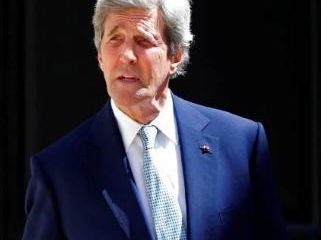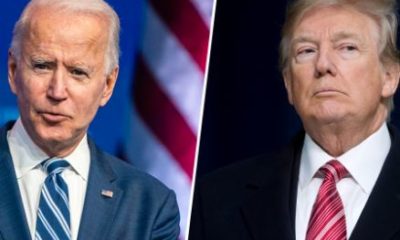World
UN should consider cultural, religious backgrounds for human rights dialogues: India

By Arul Louis
United Nations: Universality of human rights is not the same as uniformity of values and the UN should consider the regional, cultural and religious backgrounds to hold dialogues with member states, India told the General Assembly Monday.
Speaking at a discussion of the report of the Human Rights Council, India’s Deputy Permanent Representative Bhagwant Singh Bishnoi sought to put the focus on the right to development as a component of human rights.
“The Council must ensure that the indivisibility, inter-relatedness and interdependence of all human rights, including the right to development must be treated in a fair and equal manner,” he said.
Bishnoi stressed the need for “constructive international dialogue” to realise the human rights of all.
“While the universality of rights should not be construed as uniformity of values and systems, the Council must bear in mind the significance of national and regional particularities and various historical, cultural and religious backgrounds in its constructive dialogues with the Member States,” he added.
In recent times the UN has come into conflict with deeply held religious beliefs and cultural values of some countries as it seeks to expand the ambit of human rights, especially in the area of gay and transgender rights, even as many basic elements of human rights continue to be violated around the world.
All Islamic nations and several other countries with conservative social values have mounted unsuccessful attempts to block these efforts.
In September last year Islamic nations and many African countries voted against a Human Rights Council resolution on combating discrimination against gays and transgender people. India abstained from voting on the resolution, which was passed by the Council.
India voted for a General Assembly resolution introduced by Russia in March that opposed giving spousal benefits to same sex couples working for the UN. Islamic countries and many other conservative countries also backed the resolution, which was defeated.
About the role of the Council, to which India was re-elected last year, Bishnoi said, “We need to retain its universality and further improve its efficiency and impact by rationalizing recommendations and avoid using it for imposing specific thematic issues that are yet to acquire universal acceptance.”
The annual report of the United Nations High Commissioner for Human Rights issued in May but was not among the reports conidered Monday, noted the progress made by India on rights of transgender people. “The Supreme Court of India affirmed the right of transgender persons to determine their own gender, and called upon the government to ensure equal rights for transgender persons, including in access to health care, employment and education,” the report said.
Emphsasising the right to development as a human right, Bishnoi said, “With the Government of India’s motto ‘sabkasaath, sabkavikas,’ meaning ‘together with all and development for all,’ the foremost priority is to ensure rapid, sustainable and inclusive development to achieve full realization of all human rights for all its citizens, with equality at its core. Our new policies and programmes are rooted in human rights standards and lay special emphasis on the poor and marginalized, including women and children.”
World
Lockdowns in China Force Urban Communities to Defy Censorship and Vent Frustration Online

Shanghai’s rich middle class is leading a wave of online dissent over the strict and prolonged lockdowns imposed in various parts of the country. Chinese internet censorship is struggling as patience is wearing thin in many urban centers, coming up with creative forms of online protests.
Social Media Posts Revealing Lockdown Tension in Shanghai
Drawn-out lockdowns are nothing new in China as authorities insist with the nation’s zero-Covid policy since the start of the pandemic. Currently over This time around, however, metropolitan areas like Shanghai are increasingly difficult to keep quiet, given that its more than 25 million residents have seen weeks of total isolation along with food shortages and many other service interruptions.
Dozens of towns and reportedly over 300 million Chinese citizens have been affected by lockdowns of different severity. As expected, urban netizens have been most outspoken over their difficulties by finding creative ways to get around state censorship and bans placed on topics, news comments and spontaneous campaigns.
Shanghai residents have been using mobile proxies and hijacking seemingly unrelated hashtags to talk about healthcare issues, delivery failures and the overall severity of their situation. The “positive energy” that the Chinese government wants to transmit during the recent prolonged series of lockdowns does not come naturally to those counting food supplies and online censors are working hard to filter words, trending topics and undesired social media sharing.
WeChat groups and message threads are under constant monitoring. Posts questioning the zero-Covid approach have been quickly deleted, including by leading Chinese health experts like Dr. Zhong Nanshan. Video footage is soon censored and protests and investigations are quickly made to disappear.
Where this has not worked, officials have exposed banners with warnings and outright threats like “watch your own mouth or face punishment”, while drones have been patrolling the city skies. Yet, if anything, this has led to further tensions and unspoken confrontation with Shanghai’s educated and affluent middle class.
Creative Online Solutions Harnessing Civic Energy
Announcements by Chinese social media that they would be publishing the IP addresses of users who “spread rumors” have not helped either. Tech industry research has shown that much of Asia’s tech-savvy population has a habit of using mobile proxies and other privacy tools, quickly finding workarounds to browse the internet freely and talk to the world about the hottest topics.
The sheer volume of forbidden posts is already a challenge for the very censorship system, experts explain. Unable to track all trending hashtags, state workers overlook topics that speak about the US, Ukraine or other popular news. Linking human rights elsewhere to their situation, Chinese online dissidents establish their informal channels and “hijack” the conversation to share personal or publicly relevant information about the Covid suppression in their town.
Sarcastic and satirical posts still dominate. Others hope to evade the censors by replacing words from famous poems or the national anthem. One thing is certain – social media, when harnessed with the right creativity, has proven its ability to mount pressure on the government in even some of the most strictly controlled tech environments like China.























